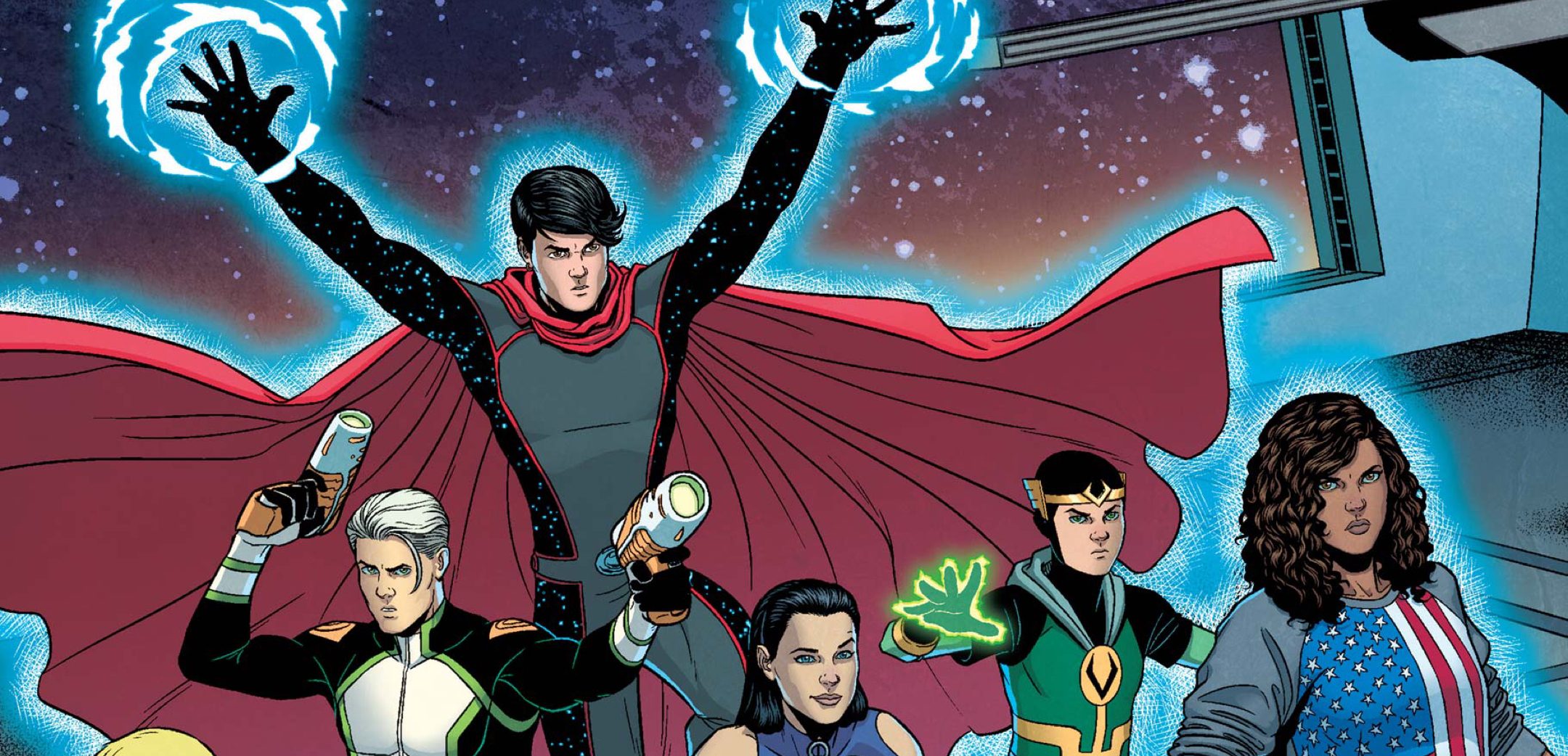How Will the MCU Handle Wiccan’s Problematic Name? There’s an Easy Fix.

Joe Locke has been cast in the upcoming Marvel series Agatha: Coven of Chaos, and many fans believe that he’ll be playing Billy Kaplan, the teenage version of one of Wanda Maximoff’s children. In the comics, Billy grows up in a Jewish family, learns how to use magic, and joins the Young Avengers, eventually becoming a powerful spirit of the Earth called the Demiurge. Billy is awesome for a lot of reasons, but there’s one problem: his superhero name, Wiccan.
If Billy really is entering the Marvel Cinematic Universe, now is the perfect time for Marvel to deal with the name—and there’s a solution that would make pagan fans very happy.
Billy’s code name Wiccan, explained
When Billy first emerges as a superhero in Young Avengers, he styles himself after Thor and goes by the name Asgardian, choosing to use only lightning powers. However, after he reveals the true scope of his abilities, Kate Bishop suggests that he go by the name Wiccan instead.
Billy’s name is based on the word Wicca, which comes from the Old English word ƿiċċa (pronounced “witch-ah”), meaning “sorcerer.” That’s really all there is, in terms of the name’s backstory—Kate just seems to connect Billy to Wicca based on the fact that he casts spells. On the surface, the name might seem reasonable. However, the modern word Wicca doesn’t refer to any generic sorcerer, like its Old English predecessor does. Wicca, and the derivative word Wiccan, only refer to a specific religion and its practitioners. And as far as we know, Billy Kaplan doesn’t belong to that religion.
Why is the name Wiccan problematic?
The word Wicca was coined in the 1950s by British occultist Gerald Gardner, who created a new religion based on ceremonial magic and ancient European paganism. Over the decades, some strands of Wicca evolved into a nature religion, with practitioners venerating the Earth and its annual cycles of death and rebirth. Some Wiccan groups are highly structured, with priests and priestesses presiding over covens, while other practitioners are more freeform and eclectic. There’s a lot of overlap between Wicca and other forms of witchcraft and paganism, but it’s still its own distinct religion.
Why is Billy’s use of the name Wiccan problematic? Because Wiccans are real people who practice a real religion. Reducing Wiccans to a superhero’s code name erases them and invites ridicule, which has real effects on the safety of witches and pagans. It doesn’t matter whether or not you think Wicca is a “real” religion, and it doesn’t even matter that witches are often guilty of cultural appropriation themselves. Marvel can do better.
And Marvel does seem to be aware of the problem. Writer Kieron Gillen hangs a lampshade on it in Issue #2 of his Young Avengers run, in which Loki calls Billy out on his name.
I actually really want to hear Loki’s ideas for alternatives, because I bet there are some gems in there. Anyway, Loki’s point is spot on: Billy shouldn’t call himself Wiccan when he doesn’t practice Wicca.
If Billy really is entering the MCU, then Marvel has a few options for how to deal with the problem. The first is to follow Young Avengers’ lead, acknowledge that it’s a bad name, and move on. As Bruce Banner says in She-Hulk: Attorney at Law, superheroes seldom get a choice with “these names,” so it’s easy to imagine some bystander calling Billy “Wiccan.” That solution would reduce his whole name to a throwaway line, though.
Marvel also has the option of just ignoring the name altogether, and having Billy go without a superhero moniker. But where’s the fun in that?
There’s one more solution that would involve deviating from the comics, which the MCU already does pretty regularly. It would solve the appropriation problem and give Wiccans some potentially positive representation.
What if Billy were literally a Wiccan?
Make Billy Wiccan!
I’m serious. Give the kid an altar and an athame. Have him conduct private rituals in his bedroom, calling the quarters and invoking deities like so many teen witches do in real life. Give him a shelf full of witchy books—or maybe a secret pile under his bed, if he doesn’t want his parents to know. Make witchcraft not just his superpower, but his spiritual path! After all, his transformation into the Demiurge already has a pagan bent to it, since the Demiurge is the living embodiment of the Earth’s biosphere.
Granted, “Wiccan” as an official codename still wouldn’t work (imagine if Matt Murdock’s moniker were “Catholic”), but at least, if someone referred to him as Wiccan, the moment would be both an homage to his comics roots and an accurate descriptor.
But wait, you might be thinking (or feverishly typing into the comments section). Isn’t Billy Jewish?
Not a problem! Billy wouldn’t be the first teenager to hide his interest in witchcraft from his parents. He wouldn’t even be the first Jewish witch on television—see, for instance, Willow Rosenberg from Buffy the Vampire Slayer. There are enough Jewitches out there, blending Judaism with various traditions of witchcraft, that we’ve even got a cute name for ourselves. (Yes, that name is “Jewitch.” What? It’s cute!)
The MCU has been taking steps forward in representation lately, introducing characters like America Chavez (despite the issues therein) and Kamala Khan, and reimagining other characters like Namor the Sub-Mariner. Having Billy practice Wicca wouldn’t just solve the issue of his moniker—it would give witches and pagans a chance to see ourselves on the screen, and not just as fodder for horror movies or the butt of a joke. Wicca and other forms of witchcraft are beautiful and meaningful spiritual practices, and it’d be a gift to the pagan community to see that reflected in the MCU.
(featured image: Marvel Entertainment)
Have a tip we should know? tips@themarysue.com